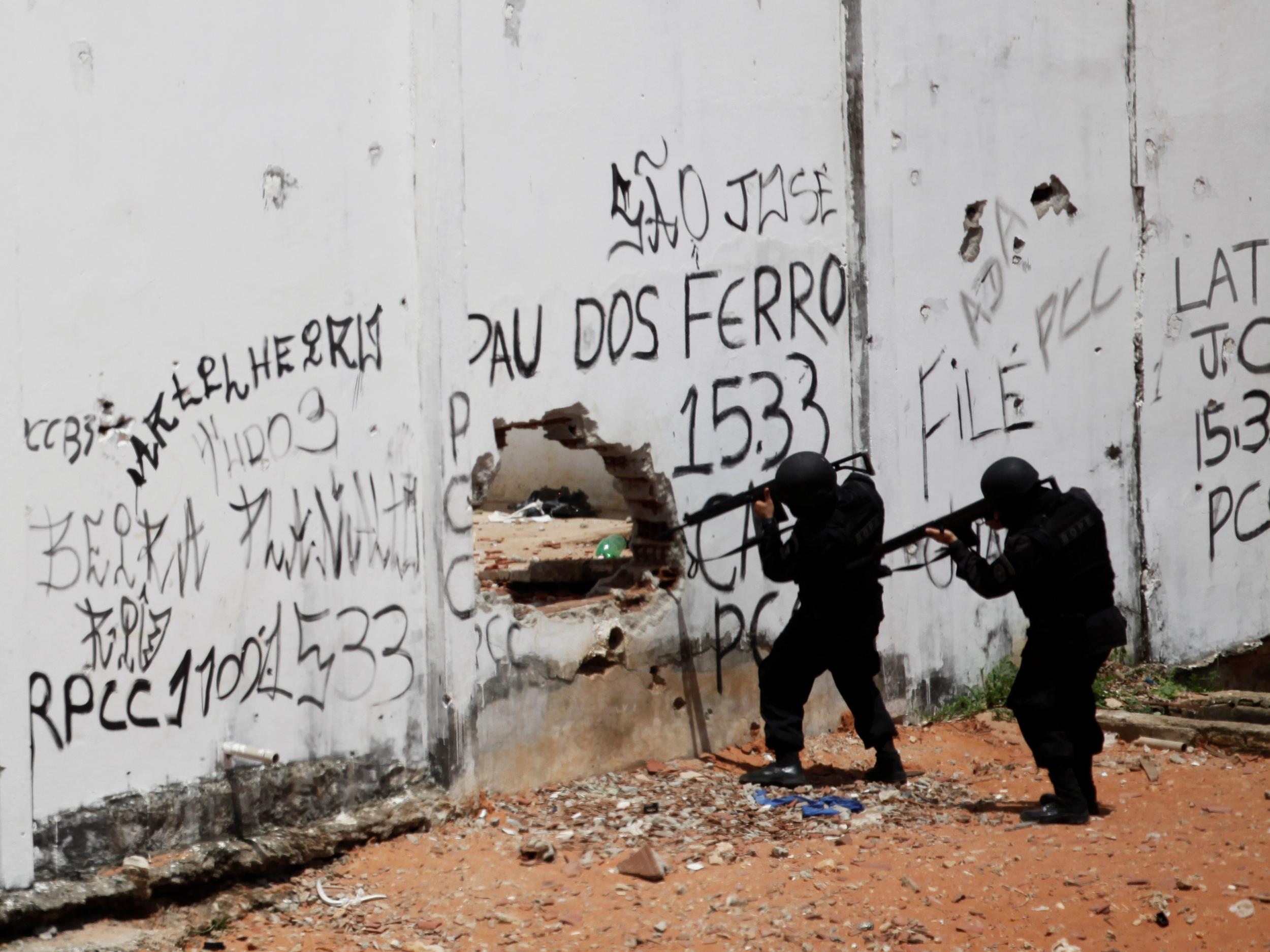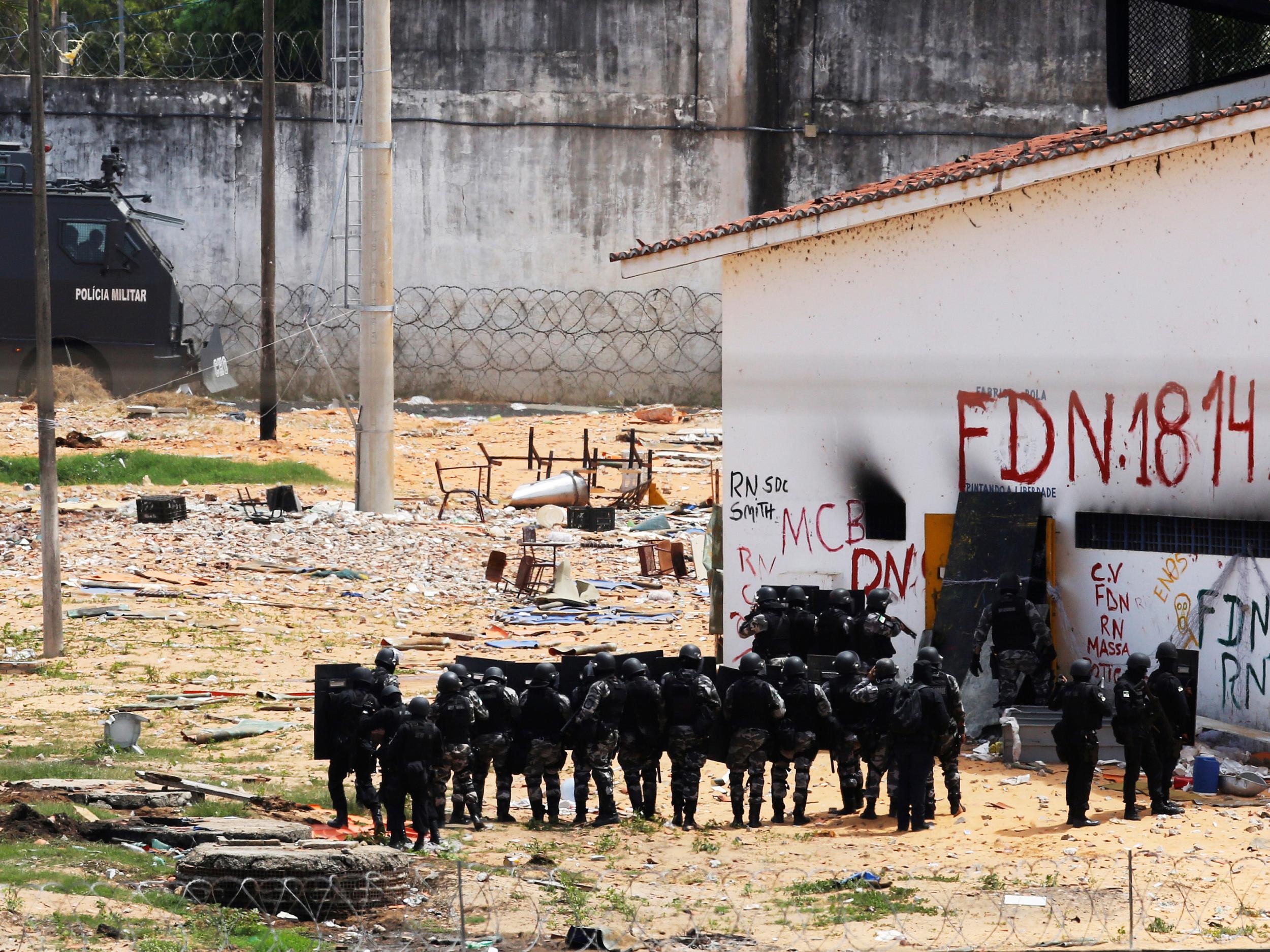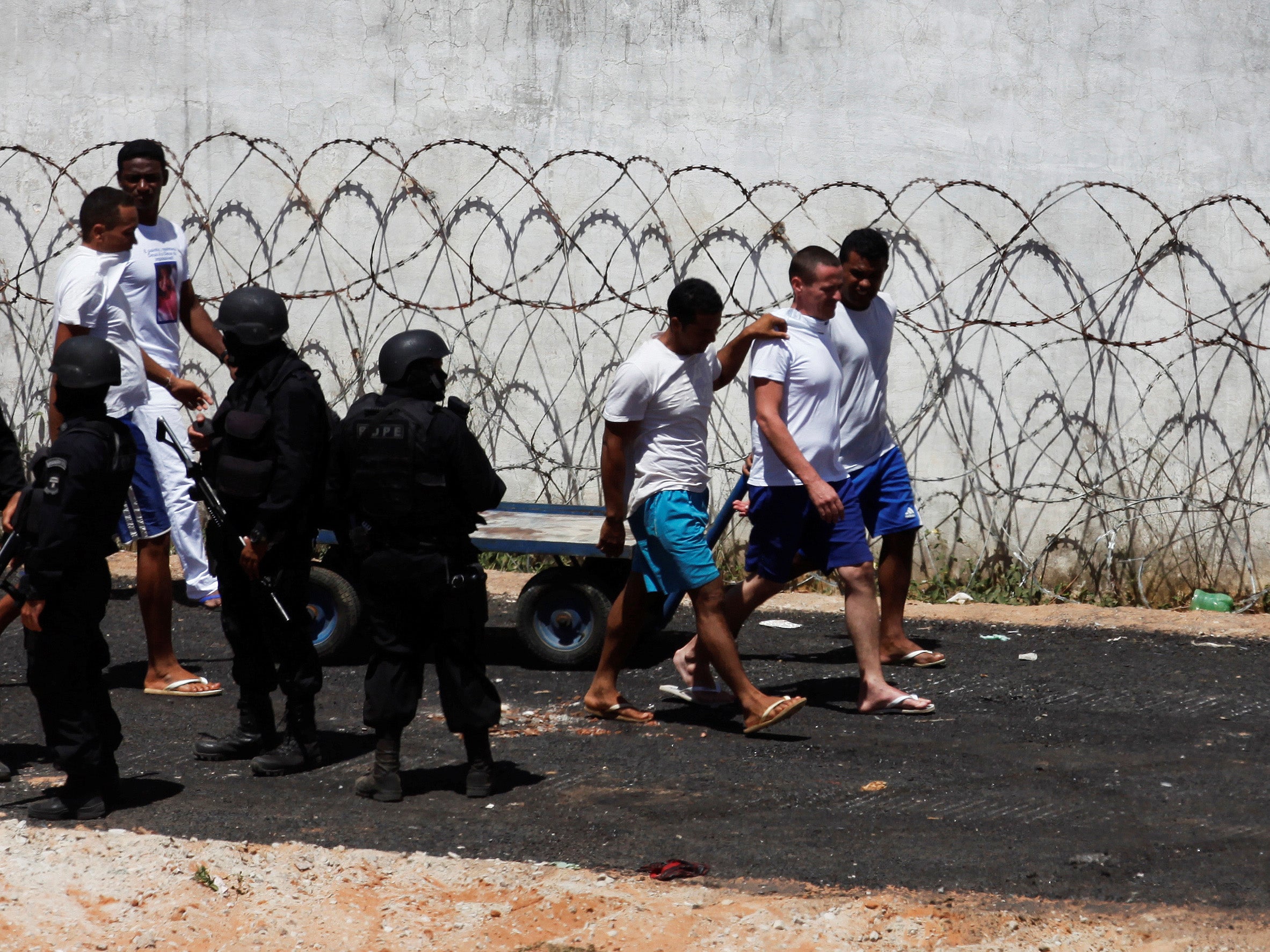Police enter Brazil prison after week of gang-fuelled chaos in which 26 died
Many of the dead were dismembered in the violence, with investigators finding a full skull, parts of two other skulls and other bones

Your support helps us to tell the story
From reproductive rights to climate change to Big Tech, The Independent is on the ground when the story is developing. Whether it's investigating the financials of Elon Musk's pro-Trump PAC or producing our latest documentary, 'The A Word', which shines a light on the American women fighting for reproductive rights, we know how important it is to parse out the facts from the messaging.
At such a critical moment in US history, we need reporters on the ground. Your donation allows us to keep sending journalists to speak to both sides of the story.
The Independent is trusted by Americans across the entire political spectrum. And unlike many other quality news outlets, we choose not to lock Americans out of our reporting and analysis with paywalls. We believe quality journalism should be available to everyone, paid for by those who can afford it.
Your support makes all the difference.Military police have entered a prison in north east Brazil, establishing tenuous control after a week of chaos and fighting between rival gangs that left 26 inmates dead.
The unrest was the latest in a spate of violence in the country's penitentiaries, in which at least 126 people have been killed since the beginning of the year. The fighting is typically between members of rival gangs that compete for control of drug trafficking routes outside prison walls.
A week after inmates first rioted at Alcacuz prison, riot police and other forces moved into the complex outside the city of Natal on Saturday. As a helicopter flew overhead, an armoured vehicle also entered the complex and later construction equipment was brought in.
Authorities would not say how many officers entered the complex, but an Associated Press reporter saw about 40 go in.
A few hours after the operation began, Eduardo Franco, a military police spokesman, said the complex was again under police control.
But Andre Azevedo, general commander of the Military Police in Rio Grande do Norte state, painted a bleak picture of the situation inside, saying that the entire system had broken down and maintaining control would be an ongoing battle. Many of the inmates are armed.
“Every time the police enter... they take away weapons that they find, but this is not enough to guarantee that tomorrow there won't be weapons,” he told reporters late Saturday. In the vast complex, prisoners can easily find or make weapons, he said.

In the confrontation at Alcacuz, authorities said members of the Sao Paulo-based First Command, Brazil's largest criminal gang, known by the Portuguese acronym PCC, fought with local gang Crime Syndicate of Rio Grande do Norte.
Police forces have begun building a wall of shipping containers to separate rival prisoners from one another. Eventually, the temporary measure will be replaced with a concrete wall.
In the violence, many of the dead were dismembered, and investigators from the medical examiner's office on Saturday found several body parts, including a full skull, parts of two other skulls and other bones. Given the state of decomposition of the skulls, the office said they belonged to people killed in the violence a week ago.
Of the 26 bodies previously sent to the medical examiner, 22 have been identified, the office said in a statement.
Much of the prison appears to have been damaged in the previous week. From a vantage point outside, holes could be seen in the walls and rooftops of buildings within the complex. Debris littered the ground. Even before the recent destruction, the prison was commonly called “Swiss cheese” because it was built on sand dunes, and prisoners over the years have managed to tunnel out.
G1 reported another riot Saturday in a prison in Pernambuco state, also in the northeast. It quoted officials as saying one prisoner was killed and 13 injured in the violence before authorities regained control.
The series of riots and grisly killings in Latin America's largest country has put a spotlight on overcrowding, underfunding and understaffing in the prison system.

For instance, Alcacuz is home to more than 1,000 inmates, though it was built for 620. Images on TV and in newspapers of prisoners wielding weapons and cellphones have embarrassed President Michel Temer and put pressure on his administration to reform the system.
Authorities in Brazil are under pressure to crack down on crime, in general, and many states have struggled to do that in the context of shrinking budgets amid an economic recession.
Associated Press
Join our commenting forum
Join thought-provoking conversations, follow other Independent readers and see their replies
Comments